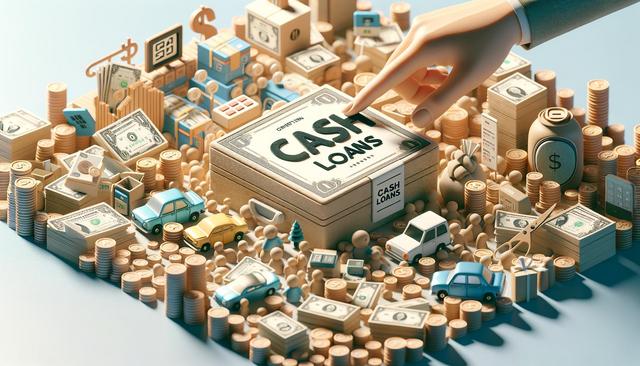Understanding Consumer Finance For People With Black History
Consumer finance options have expanded significantly in recent years, offering more inclusivity for individuals with non-traditional financial backgrounds. When we talk about consumer finance for people with black history, we’re referring to financial tools and lending solutions that recognize the unique challenges faced by people who may have experienced systemic barriers in traditional banking systems. This includes understanding cultural, historical, and socioeconomic contexts that affect credit and borrowing behaviors.
For many individuals, traditional lenders tend to rely heavily on credit scores, often overlooking other indicators of financial responsibility. This can disproportionately affect people with limited access to financial education or opportunities. As a result, specialized financial services have emerged that aim to provide more equitable access. These services include:
- Micro-loans with flexible repayment terms
- Credit-building accounts that report to bureaus
- Community-based lending programs
These options are designed to promote financial stability and growth, especially for borrowers who may have been underserved in the past. By tailoring offerings to meet the needs of various communities, lenders are beginning to bridge the gap in consumer finance accessibility.
Loans OK For Those With A Financial Blacklist
Being on a financial blacklist can feel like a major barrier when seeking credit, but it doesn’t completely eliminate your options. Loans OK for those with a financial blacklist are designed to offer financial lifelines to individuals who might have had defaults, judgments, or other credit issues in the past. These types of loans often come from non-traditional lenders who focus on a wider range of criteria beyond just credit scores.
Lenders offering these products may consider:
- Current employment status and income level
- Personal references or proof of regular bill payments
- Collateral or guarantor options
While interest rates may be higher to offset perceived risk, these loans can provide essential support when you’re facing an emergency or trying to rebuild your financial standing. Responsible borrowing and timely repayments can even help improve your credit profile over time, gradually moving you off the financial blacklist.
Rebuilding Credit Through Loans After Debt Consolidation
Debt consolidation is a practical step for many people trying to get a handle on multiple financial obligations. However, even after consolidating debt, access to credit can remain limited. Loans after debt consolidation provide a way for individuals to re-engage with credit in a controlled and manageable manner. These loans are often structured to help borrowers demonstrate improved financial behavior.
Benefits of these loans include:
- Lower monthly payments through extended terms
- Opportunities to show consistent repayment behavior
- Structured paths to rebuild your credit score
It’s important to work with lenders who understand the context behind your debt history and who are willing to offer guidance during the repayment period. Transparency in loan terms and a clear understanding of your budget are essential to ensure that the new loan supports your financial goals rather than adding to your challenges.
Accessing Loans Without Screening
For individuals who have dealt with rejections due to credit checks, loans without screening present an alternative worth exploring. These loans typically do not involve traditional credit assessments and may rely instead on other indicators such as income, employment status, or banking history. While appealing, they require careful consideration to avoid predatory practices.
Advantages of loans without screening include:
- Faster application and approval processes
- Reduced risk of rejection due to credit score
- Access for individuals with limited or no credit history
However, borrowers should pay close attention to terms such as interest rates, fees, and repayment timelines. It’s advisable to work with lenders who are transparent and regulated to ensure that you’re not compromising your financial future for short-term relief. These loans can be useful stepping stones when used responsibly.
Loans Available Even If You Are Blacklisted Or Have A Debt History
One of the encouraging developments in consumer finance is the availability of loans even if you are blacklisted or have a debt history. Lenders offering such products often focus on current financial capacity, rather than past issues. This can be a game-changer for individuals who are actively working to improve their financial situation but still face obstacles due to their history.
These loans typically involve:
- Flexible eligibility requirements
- Clear and reasonable repayment schedules
- Options for secured or unsecured borrowing
It’s essential to approach these opportunities with a mindset of rebuilding and responsibility. While access is improving, the goal should be long-term financial health. By choosing a loan that suits your current needs and budget, and by prioritizing timely repayments, you can gradually shift your financial trajectory in a positive direction.
Conclusion: Empowering Financial Recovery Through Inclusive Lending
Access to financial services should not be limited by past missteps or systemic challenges. Whether you’re looking into consumer finance for people with black history or exploring loans available even if you have a debt history, there are options designed to support your journey. These loan products and financial tools offer opportunities to regain control, rebuild credit, and move toward financial stability. By understanding the terms, choosing reputable lenders, and committing to responsible borrowing, individuals can take meaningful steps toward a more secure financial future.




Leave a Reply